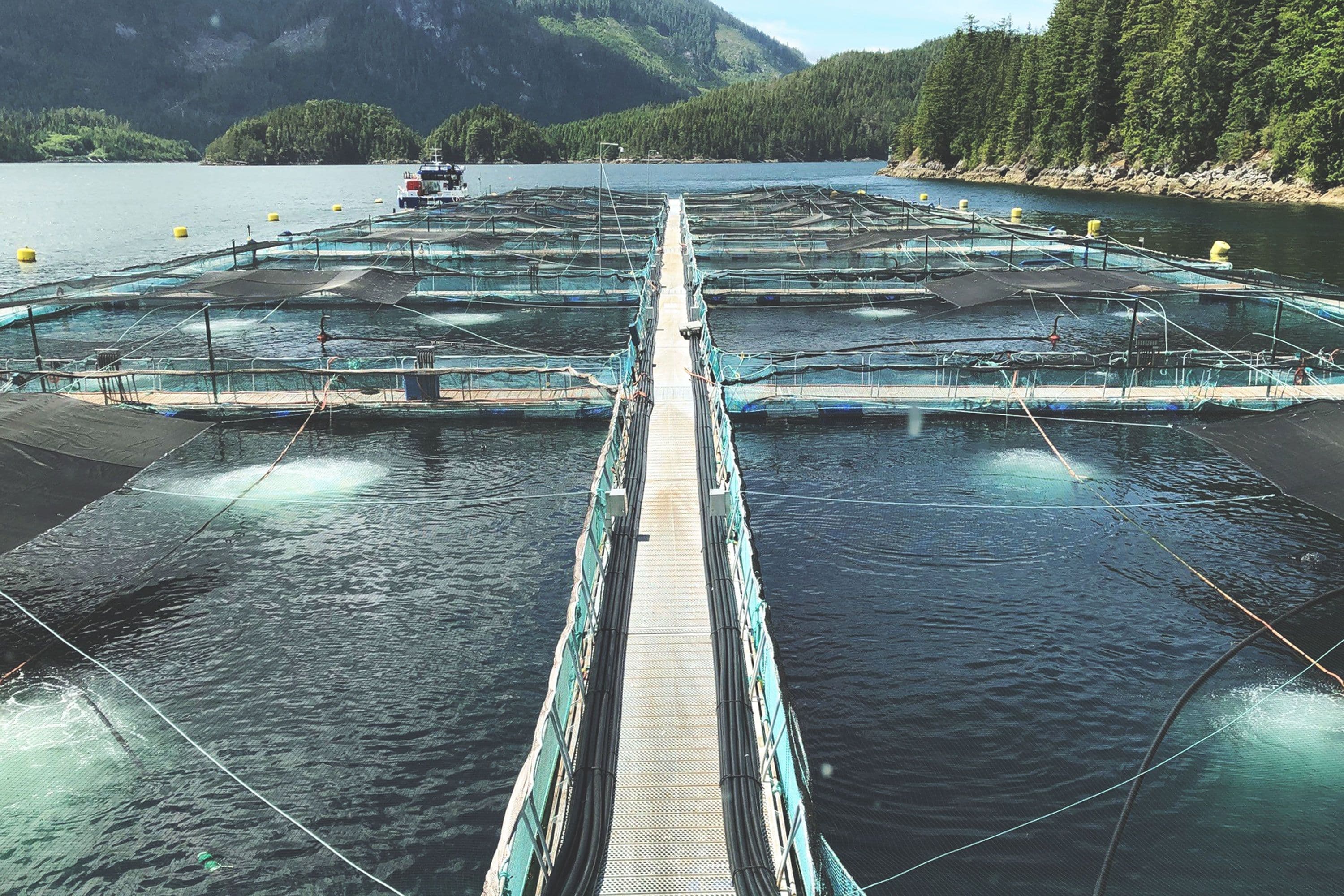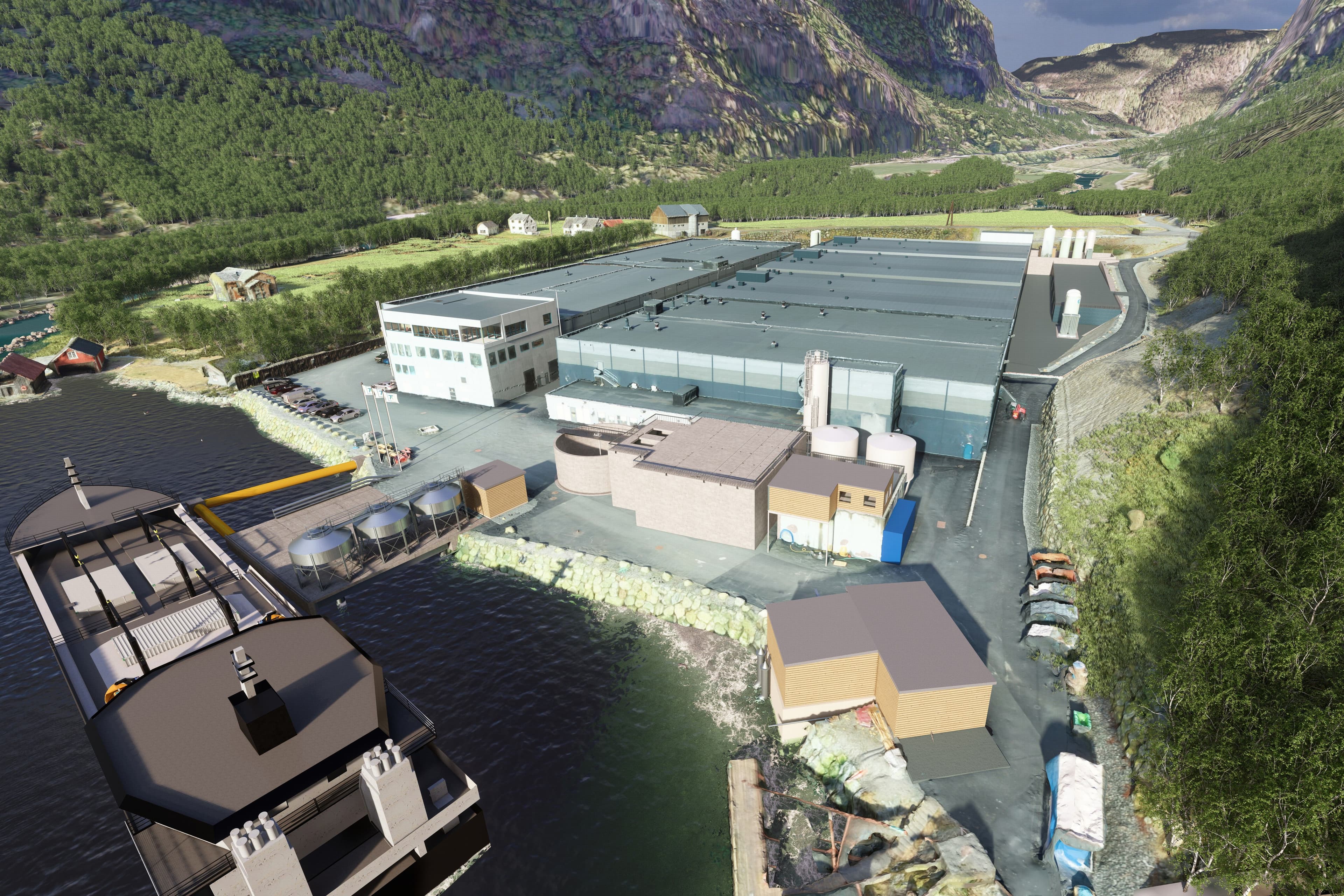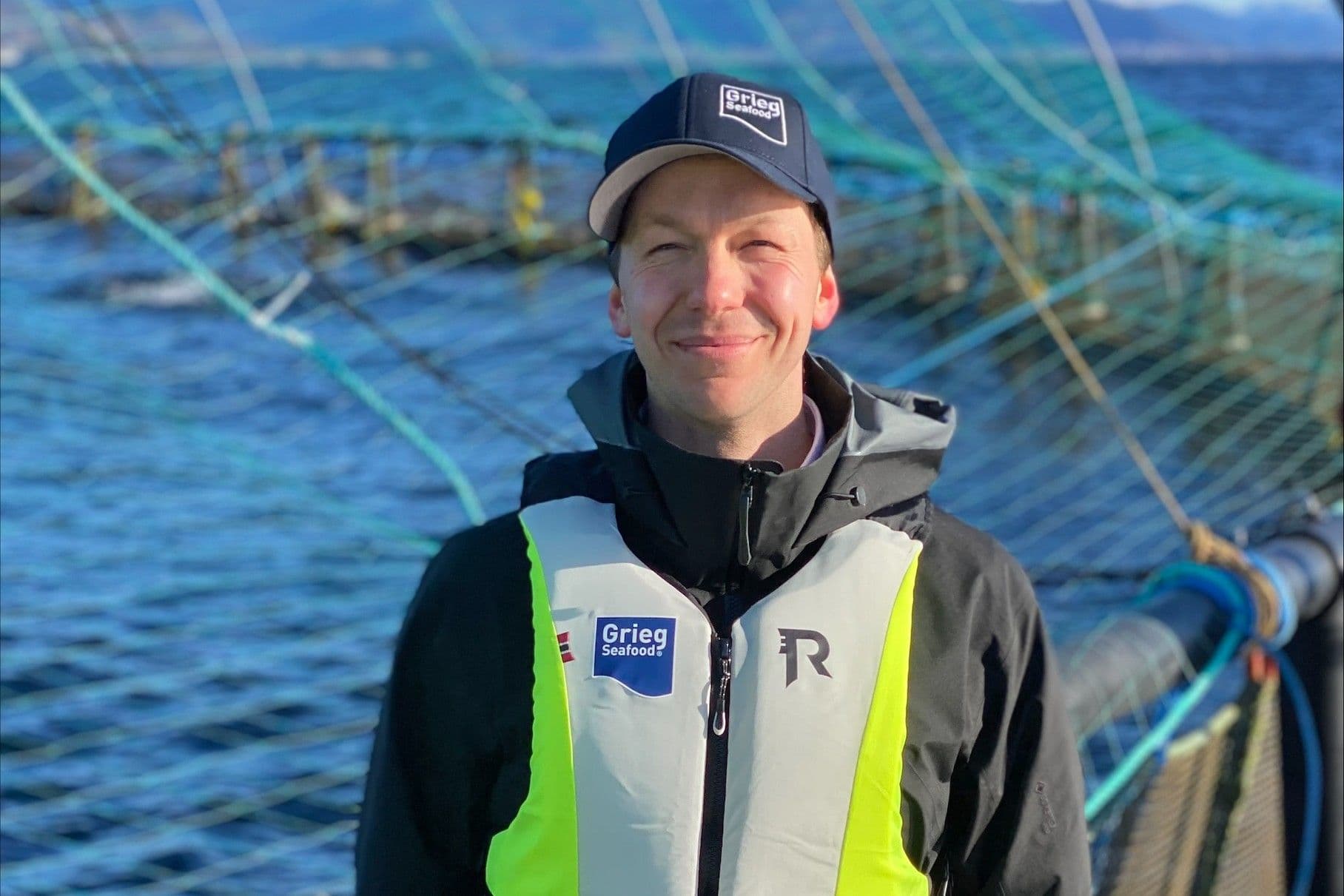
GSI members strengthen commitment to provide healthy and sustainable farmed salmon through ongoing advancements in responsible farming practices
- New target areas including climate impact reporting and mitigation, and promoting circular economy approaches, starting with a focus on plastics
- Including collaborating with World Wildlife Fund (WWF) to establish an industry framework – first-of-its-kind in the food sector – to assess and mitigate the industry’s climate impact
- 21 companies reaffirm their commitment to the GSI vision; working together to accelerate innovation and improvements in sustainability performance, to establish the farmed salmon industry as the leader in producing sustainable and nutritious protein
- Regin Jacobsen, CEO Bakkafrost takes Co-Chair role alongside Gerardo Balbontin, CEO Blumar
The Global Salmon Initiative (GSI) today announces its advanced vision for the future. Building on the group’s strength in applying collective knowledge and expertise to accelerate improvements in sustainability performance, the GSI is introducing new projects to address global challenges in climate, food and nutrition security to further cement the farmed salmon industry as the global leader in producing sustainable and nutritious protein. New projects include establishing a reporting framework of industry and supply chain climate impact, in collaboration with the World Wildlife Fund (WWF). This is the first-of-its-kind in the food sector and will be used to enhance climate mitigation strategies across production and the supply chain. As well as new projects promoting responsible plastic use, and the development and integration of circular economy approaches to support a healthy and resilient food system.
“Earlier this year WWF described GSI as the ‘leading example of industry transformation’ and it is our job to build on that reputation through continuous improvement,” said new GSI Co-Chair, Regin Jacobsen, CEO of Bakkafrost. “The progress made to date under the GSI leadership is unprecedented, but now is not the time to rest on our laurels. We are all facing the huge challenges which continue to emerge on climate, biodiversity and food security. But by continuing to work together to address these challenges and share innovation, salmon farming can be part of the solution in providing healthy and sustainable food.”
“GSI has always been a leading example of change,” added Jason Clay, Senior Vice President of Markets at WWF. “No other group works at GSI’s industry-wide level or produces the same kinds of impact at a global scale. Their initial focus on ASC certification and biosecurity was ambitious and it is great to see the progress they made. While we don’t want this work to stop, we strongly support the GSI’s decision to start working on new initiatives. Climate impacts and carbon reporting are critical elements of food production. We know aquaculture will play a significant role in future food systems. Only GSI has a track record of working together to solve industry-wide problems. It is great to see them lead in this space. We need to document what GSI does and how they do it so others can follow.”
- When reviewing the world’s challenges, climate change, circular economy approaches and reliance on plastics were identified as the areas where GSI members could collectively have the biggest impact.
- The Intergovernmental Panel on Climate Change has reported that 21–37% of total greenhouse gas emissions are attributable to the food system, a footprint that will be compounded by the need to produce 60% more food to meet changing demographics, according to the Food and Agricultural Organization of the United Nations (UN FAO). Global food systems need to change and focus on climate-friendly foods that meet vital nutritional needs. Salmon farming already has one of the lowest carbon footprints of all animal protein-producing sectors; however, as the sector grows to meet increasing demand, further action is necessary to reduce impact. Through developing an industry-wide reporting platform, GSI members will be able to transparently measure their climate impact and use the results to develop effective climate mitigation strategies.
- Plastics, pollutants and packaging are entering the world’s water systems at alarming rates. As ocean farmers, a healthy ocean is critical to GSI members’ work, the livelihoods of our colleagues and the communities in which we operate. With this, GSI members acknowledge their responsibility and ability to introduce circularity approaches, reduce reliance on plastic across the supply chain, and support greater awareness and removal of plastics from the ocean. The GSI will review and accelerate progress on circular economy approaches, reducing the use of plastics and supporting awareness initiatives to reduce plastics in the ocean.
Alongside the enhanced new focus on climate change mitigation, circular economy and plastics, the GSI is strengthening social impact initiatives through transparently reporting on expanded social metrics in the annual Sustainability Report.
The GSI was established in 2013 by leading industry CEOs committed to helping feed the world in a healthier, more sustainable way through advancements in responsible salmon farming.
GSI’s achievements to date
- Launching the first industry-wide Sustainability Report in the food sector – collecting audited data across 15 environmental and social data points across all members and regions
- Committing to achieving the highest industry standards
- 60% of GSI member production is now Aquaculture Stewardship Council (ASC) certified
- Companies continue on their mission to reach 100%
- Facilitating a global knowledge-sharing and problem-solving platform to support the industry in improving fish health and welfare
- Including technology transfer and best-practice initiatives on sea lice management and reducing antibiotic use – showing a 50% reduction in usage across the members between 2013 and 2019
- Driving improvements in feed sustainability, including:
- A joint project with the UN FAO and the International Fishmeal and Fish Oil Organisation (IFFO) to map global by-product resources to support zero-waste initiatives
- The launch of a global tender for innovative novel oil sources rich in omega-3s, increasing availability for the global industry
- Continued improvements in feed sourcing and efficiencies


